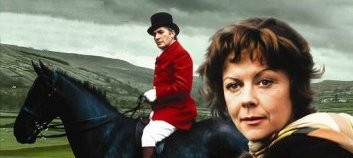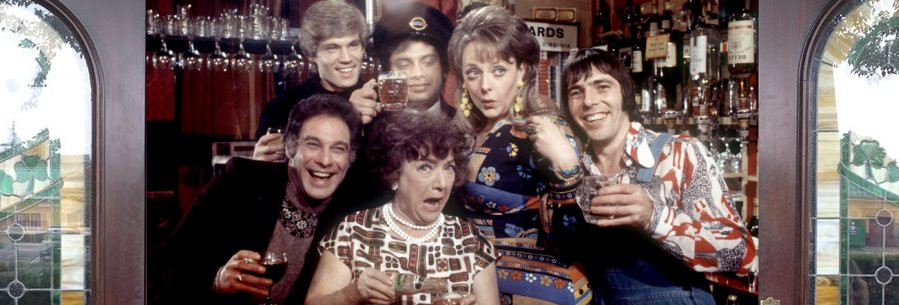
South Riding
1974 - United KingdomAn award winning series from Yorkshire Television based on Winifred Holtby's most celebrated novel, which she originally finished writing in 1935, just a month before she died, South Riding, which starred the distinguished and much loved British actress Dorothy Tutin in the lead role of headmistress Sarah Burton and Nigel Davenport as Robert Carne, became the surprise hit of 1974.
Winifred Holtby was born in 1898, the daughter of David Holtby, a prosperous Yorkshire farmer, her mother, Alice Holtby, was the first alderwoman in Yorkshire. Educated at home by a governess and then at a boarding school, Holtby passed the entrance exam for Somerville College but left in early 1918 to join the Women's Auxiliary Army Corps . After the war she returned to Somerville College where she met Vera Brittain. The two women graduated together and in 1921 and they moved to London where they hoped to establish themselves as writers. But where Vera's first two novels, The Dark Tide (1923) and Not Without Honour (1925) met with little success, Winifred had much more of an impact with Anderby Wold (1923), The Crowded Street (1924) and The Land of Green Ginger (1927).
Winifred was also in demand as a journalist and over a period of twenty years she wrote for numerous newspapers and magazines. This included the feminist journal, Time and Tide, the Manchester Guardian and a regular weekly article for the trade union magazine, The Schoolmistress. Books published during this period included a critical study of Virginia Woolf and a volume of short stories; 'Truth is Not Sober.' She was a pacifist and a great critic of the class system and inherited privileges and by the late 1920s was active in the Independent Labour Party.
In 1926 Holtby spend six months in South Africa, where she learned about the conditions of native South Africans and spoke for the unionisation of black workers. Her observations of racism found their way to the novel 'Mandoa, Mandoa!' (1933).
Holtby was diagnosed with Bright's Disease (sclerosis of the kidneys) in 1932, and was told she would only have two or three years to live. Determined to get as much work done as possible before the disease took its inevitable toll she put all her energy into what became her most important book, 'South Riding.' Winifred Holtby died on 29th September 1935. South Riding was published the following year and was highly praised by the critics.
Partly based on Holtby's experiences as a teacher and her childhood memories of growing up in the East Riding, South Riding was a classic feminist novel that offered a panoramic view of English society which took in all social levels from lords to labourers, as the authoress demonstrates the ways in which they are affected by decisions taken by local government. The heroine, Sarah Burton, who is no doubt based on Holtby, is a feminist, socialist schoolteacher who becomes headmistress of a girls' school in the fictional Yorkshire seaside town of Kiplington, where she discovers her plans for her pupils are hindered by injustices in society. Yet despite her deeply held political convictions, she falls in love with one of her chief opponents, Tory landowner Robert Carne, whose aristocratic wife is suffering from insanity.
Another major character in South Riding, Alderman Mrs Beddows, was based on Holtby's mother, Alice, who did not find the portrait entirely flattering, and in objecting strongly to some passages, Alice tried to expurgate some of them before the novel was posthumously published. But in the face of strong opposition, Vera Brittain, working not only as Winifred's literary executor but also as her lifelong friend, worked hard and successfully to ensure they were retained.
The novel had already been adapted for the cinema in 1937 but this 1974 13-part Yorkshire Television production is the best remembered and a repeat showing on Channel 4 in 1987 has helped to keep it fresh in the mind. The series won 4 major awards in 1974: Best Drama Series - (presented by The Society of Film and Television Arts of Great Britain), Best Drama Series - (presented by The Broadcasting Press Guild of Great Britain), Best Dramatisation Award to Stan Barstow - (presented by The Writers Guild of Great Britain), and Writers Award to Stan Barstow - (presented by the Royal Television Society). The series is available on DVD.
Seen this show? How do you rate it?
Seen this show? How do you rate it?
Published on January 31st, 2019. Written by Laurence Marcus (December 2005) for Television Heaven.










